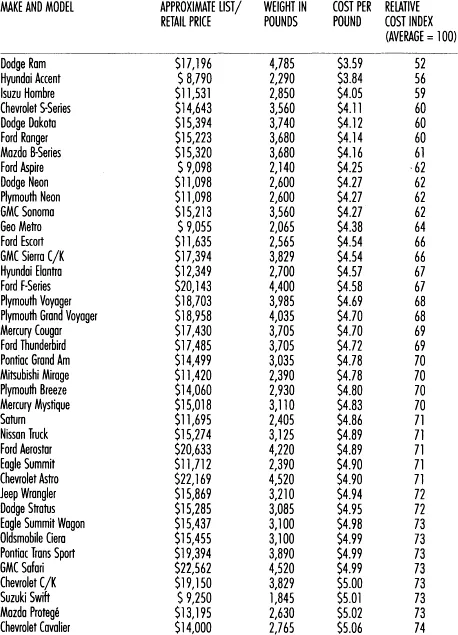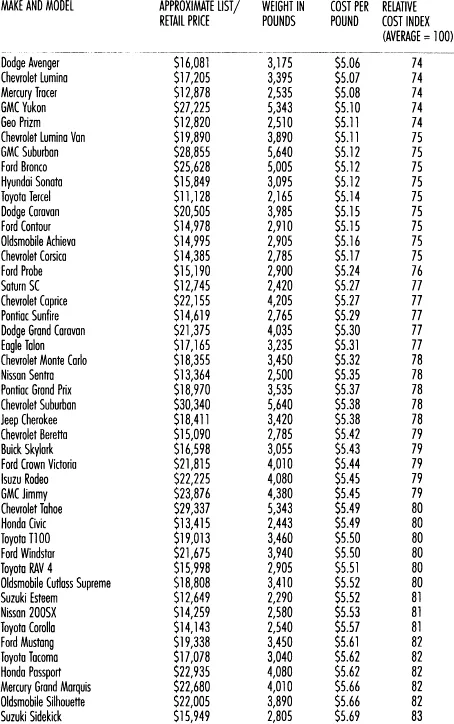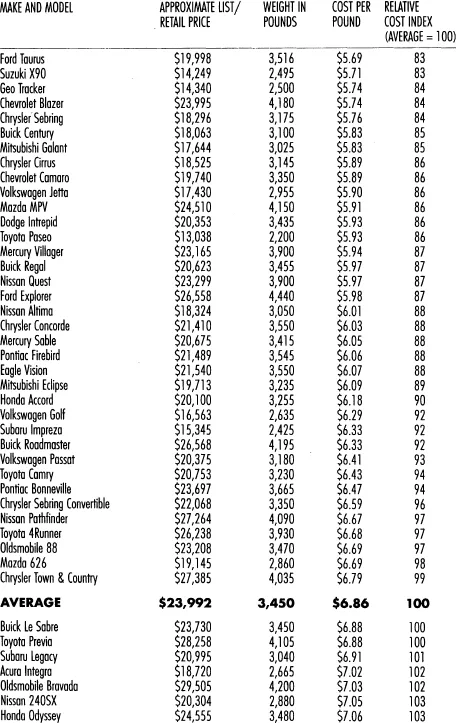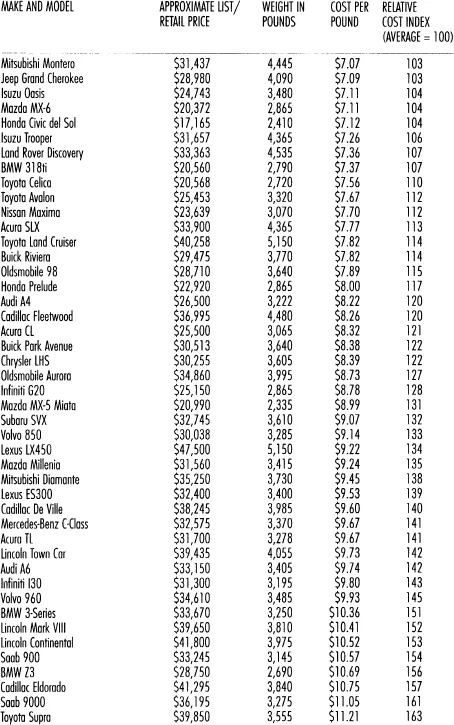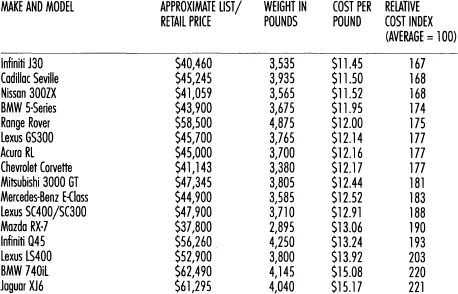![]()
APPENDIX 1
HOW WE FIND MILLIONAIRES
How do we go about finding millionaires to survey? A “C” student of ours once tried to answer this question in a marketing research course. He suggested that we merely obtain a list of people who drive luxury cars. As readers know by now, however, most millionaires do not drive luxury cars. Most luxury car drivers are not millionaires. No, this method will not work!
TARGETING BY NEIGHBORHOOD
The method used in our most recent study, as well as many others we have conducted, was developed by our friend Jon Robbin, the inventor of geocoding. Mr. Robbin was the first to classify—or code—each of the more than 300,000 neighborhoods in America. Using this system, one can code more than 90 percent of America’s 100 million households.
Mr. Robbin coded these neighborhoods first according to the average income for each. Next, he estimated the average net worth of each neighborhood by first determining the average interest income, net rental income, et. al. generated by households in each neighborhood. Then, using his mathematical “capitalization model,” he estimated the average net worth that would be required to generate such incomes. Once he had determined the estimated average net worth for each neighborhood, he assigned each a code. A code of one was assigned to the neighborhood with the highest estimated average net worth; a two was assigned to the neighborhood with the next highest average net worth, and so on. (Also see Thomas J. Stanley and Murphy A. Sewall, “The Response of Affluent Consumers to Mail Surveys,” Journal of Advertising Research [June/July 1986], pp. 55–58.)
We use this estimated net-worth scale to help us find millionaires to survey. First, we select sample neighborhoods that rank significantly higher than average along the estimated net-worth scale. A commercial mailing list company calculates the number of households in each of our chosen high–net worth neighborhoods. Next, the list company randomly selects heads of households within the selected neighborhoods. These are the people we survey.
In our most recent national study, conducted from June 1995 through January 1996, we selected 3,000 heads of households. Each received an eight-page questionnaire, a form letter asking for his participation and guaranteeing the anonymity and confidentiality of the data we collected, and a dollar bill as a token of our appreciation, along with a business reply envelope in which to return the completed questionnaire. A total of 1,115 surveys were completed in time to be included in our analysis. An additional 322 surveys could also be accounted for: 156 address unknown, 122 incomplete, and 44 otherwise usable surveys returned after data analysis had commenced. Overall, the response rate was 45 percent. Out of the 1,115 respondents, 385, or 34.5 percent of the total, had a household net worth of $1 million or more.
TARGETING BY OCCUPATION
We supplemented this survey with alternative surveys. Often we employ what is called the ad hoc method, in which we survey a narrowly defined population segment, as opposed to people who live within affluent neighborhoods in general. These population segments include affluent farmers, senior corporate executives, middle managers, engineers/architects, health-care professionals, accountants, attorneys, teachers, professors, auctioneers, entrepreneurs, and others. Ad hoc surveys are useful because even the best geocoding methods typically ignore affluent people who live in rural areas.
![]()
APPENDIX 2
1996 MOTOR VEHICLES: ESTIMATED PRICE PER POUND
![]()
APPENDIX 3
BUSINESSES/OCCUPATIONS OF SELF-EMPLOYED MILLIONAIRES
Accountant
Accounting/Auditing Services
Advertising Agency
Advertising Specialty Distributor
Advertising/Marketing Advisor
Aerospace Consultant
Agriculture
Ambulance Service
Antique Sales
Apartment Complex Owner/Manager
Apparel Manufacturer-Sportswear
Apparel Manufacturer-Infant Wear
Apparel Manufacturer-Ready-to-Wear
Apparel Retailer/Wholesaler-Ladies’ Fashions
Artist-Commercial
Attorney
Attorney-Entertainment Industry
Attorney-Real Estate
Auctioneer
Auctioneer/Appraiser
Audio/Video Reproduction
Author-Fiction
Author-Text Books/Training Manuals
Automotive Leasing
Baked Goods Producer
Beauty Salon(s) Owner-Manager
Beer Wholesaler
Beverage Machinery Manufacturer
Bovine Semen Distributor
Brokerage/Sales
Builder
Builder/Real Estate Developer
Business/Real Estate Broker/Investor
Cafeteria Owner
Candy/Tobacco Wholesaler
Caps/Hats Manufacturer
Carpet Manufacturer
Citrus Fruits Farmer
Civil Engineer and Surveyor
Clergyman-Lecturer
Clinical Psychologist
Coin and Stamp Dealer
Commercial Laundry
Commercial Real Estate Management Company
Commercial Laboratory
Commercial Property Management Company
Commodity Brokerage Company-Owner
Computer Consultant
Computer Applications Consultant
Construction
Construction Equipment Dealer
Construction Equipment Manufacturing
Construction-Mechanical/Electrical
Construction Performance Insurance
Consultant
Consulting Geologist
Contract Feeding
Contractor
Convenience Food Stores Owner
Cotton Gin Operator
Cotton Farmer
Cotton Ginning Owner/Manager
CPA/Broker
CPA/Financial P...

